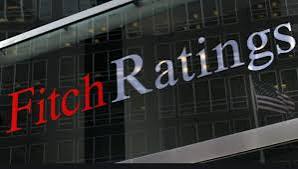BREAKING: Fitch upgrades Nigeria’s rating to Stable, cites confidence in Tinubu’s policy reforms
Fitch Ratings has upgraded Nigeria’s outlook to Stable from Negative, highlighting renewed confidence in the Tinubu administration’s commitment to far-reaching policy reforms.
While Nigeria’s long-term foreign currency rating remains at ‘B’, Fitch says the economic direction taken since mid-2023 is starting to bear fruit.
The reforms—exchange rate liberalisation, tighter monetary policy, removal of fuel subsidies, and an end to deficit monetisation—have improved macroeconomic credibility, reduced distortions, and enhanced resilience to shocks.
“We are seeing clear signs of increased commitment to market-based reforms under President Tinubu’s administration,” Fitch stated. “While challenges remain, Nigeria’s trajectory has shifted toward stability and greater investor confidence.”
FX reforms stabilise market, though risks remain
A key turning point was the Central Bank of Nigeria’s introduction of a new FX matching platform and FX code in 2024 to enhance price discovery and transparency. Following a 40% naira depreciation last year, these reforms helped narrow the official-parallel market gap and boosted FX liquidity.
- Net FX inflows through official and autonomous channels surged by 89% in Q4 2024, compared to an 8% rise the previous year. However, Fitch expects modest depreciation in the short term, particularly as external risks mount.
- Among the most pressing is the newly announced 14% U.S. tariff on Nigerian exports. Business leaders such as the President of NACCIMA have warned that the tariff could significantly reduce FX inflows and worsen naira volatility. JPMorgan echoed similar concerns, warning investors that the tariff—combined with falling oil prices—could derail recent progress in exchange rate stability.
Inflation remains high despite tighter monetary stance: Inflation cooled to 23.2% in February 2025 under a rebased CPI but remains well above the ‘B’ rating median of 4.3%. The CBN has responded with a cumulative 875 basis point increase in interest rates since February 2024, bringing the policy rate to 27.5%.
Fitch believes the CBN will avoid prematurely easing rates, as monetary stability is critical to maintaining the gains from ongoing reforms. Inflation is projected to average 22% in 2025 and 20% in 2026.
External reserves improve, but buffers still fragile: Gross reserves climbed to $41 billion by end-2024, before easing to $38 billion due to external debt servicing, including a $1.1 billion Eurobond repayment due in November.
Nigeria’s current account recorded a $6.8 billion surplus in 2024 (6.6% of GDP), aided by FX formalisation and reduced import costs.
Net external reserves stand at about $23 billion, and the CBN has reduced its reliance on FX swaps, with such liabilities now just 14% of gross reserves—down from 25% in November.
Refinery expansion, oil output recovery offer support: The Dangote Refinery is expected to scale up to 0.65 mbpd by mid-2025 from 0.55 mbpd currently, meeting domestic fuel needs and reducing reliance on imports, which account for nearly a third of Nigeria’s goods imports. Oil production (excluding condensates) is projected to rise to 1.43 mbpd in 2025, up from 1.34 mbpd, though still below pre-2019 levels due to underinvestment.
Fiscal pressures persist, banking risks grow: Despite efforts to boost non-oil revenues, Fitch forecasts Nigeria’s fiscal deficit will average 4.2% of GDP in 2025–2026, driven by rising wage bills, debt servicing, and pre-election spending.
General government revenue remains structurally low, with interest-to-revenue ratios hovering around 30% (and nearly 50% at the federal level).
The banking sector also faces mounting pressure. Non-performing loans stood at 4.9% in November 2024 and are expected to rise further due to high inflation and elevated interest rates. Though banking assets are relatively insulated, Fitch expects M&A activity to accelerate among smaller banks struggling to meet new capital thresholds.
Governance remains a drag on credit profile: Fitch flagged weak institutional capacity and governance as key constraints. Nigeria ranks in the 19th percentile of the World Bank Governance Indicators, reflecting ongoing challenges with corruption, regulatory enforcement, and the rule of law.
(Nairametrics)


